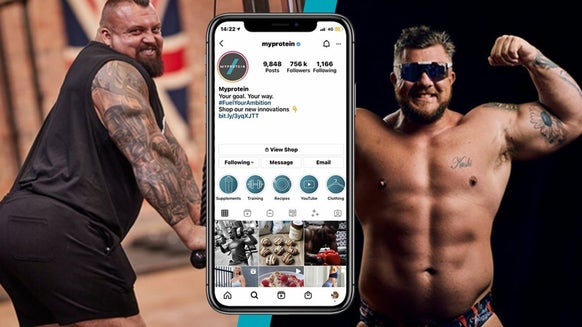
When it comes to training for hypertrophy, we usually have a date to aim for to be looking our best for; whether it’s for a competition, a holiday, or simply just for your own personal satisfaction. Ideally, we want to look as big and lean as we can, this can be possible. To look your absolute best, there are several methods which can be carried out leading up to the big day (or week). One of these methods is using depletion workouts.
What is a Depletion Workout?
Depletion workouts are performed while fasted, and your muscle glycogen stores are depleted as a result (e.g. workouts before breakfast or prior to eating when intermittent fasting). Ultimately, a depletion workout strives to utilise fat stores more than readily available glycogen, making for an efficient way to use up fat stores in your body.
Our bodies use carbohydrates as energy, which are stored as muscle glycogen. Glycogen depletion is a method that involves training hard to exhaust your body’s supply of muscle glycogen, which will, in turn, increase your sensitivity to insulin. Insulin is a hormone that is in control of the glucose levels your blood carried, and once you’ve exhausted your body of muscle glycogen your insulin sensitivity will increase as you haven’t consumed an adequate amount of carbohydrates.
Once you’ve trained to depletion and you’ve increased your insulin sensitivity, your body will be prepared to take on carbohydrates that will be used to replenish muscle glycogen stores instead of becoming stored as fat.
When it comes to knowing how to exercise, the concept is simple, train muscles until exhaustion. Typically, a person would perform 5 sets of 15-20 reps on most exercises to exhaust it.
Depletion Workout
When it comes to exercise selection and training style, a typical push-pull-legs split would be sufficient if you want to deplete your glycogen stores. Consuming minimal carbohydrates for one day and then performing an upper and lower training session. This is done by training lower one day, and upper one day, and at the end of the second day, after you’ve trained, you’ll re-feed all your carbohydrates. This means that you’re only minimising carbohydrate intake for one day, but you’re able to train twice over two days and then re-feed straight after the second training session.
Check out our examples below.
Upper Training Session
Incline Bench Press: 5 sets of 15 Rack-Pulls:5 sets of 15 Triceps Dips: 5 sets of 15 Lat Pull-Downs: 5 sets of 15 Shoulder Press: 5 sets of 15 Seated Cable Row: 5 sets of 15 Cable Flyes: 5 sets of 15-20 Rear-Delt Flyes: 5 sets of 15-20 Super Set: Biceps Curls & Triceps Push-downs: 5 sets of 15-20
Lower Training Session
Squats: 5 sets of 15 Rear Leg Deadlifts: 5 sets of 15 Hack Squats: 5 sets of 15 Super Set: Hamstring Curls & Leg Raises: 5 sets of 15-20 Walking Lunges: 5 sets of 20 Calf Raises:5 sets of 20 Leg Press (High Stance): 5 sets of 20
Take Home Message
Remember: In order to deplete your muscle glycogen stores you should ideally be in a calorie deficit, specifically limiting carbohydrate intake. Try this depletion workout routine and let us know how it goes








